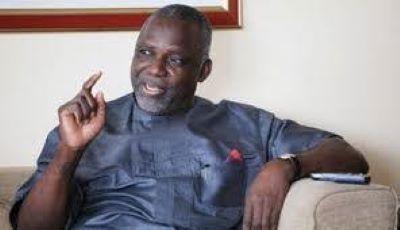A former Minister of Power, Prof. Bart Nnaji, has called on the Federal Government to resume the signing of power purchase agreements with private sector investors to ramp up Nigeria’s electricity generation.
Nigeria currently has about 13,000-megawatt nameplate capacity but generates only about 5,000MW due to a number of factors, including insufficient natural gas availability for the country’s gas-fired plants, which account for 80% of national grid electricity.
But addressing a forum of professionals involved in the electricity value chain, including bankers and lawyers, at a large meeting organised by the Udo Udoma and Belo-Osagie law firm in Lagos on Friday, Nnaji, stated that without the resumption of the PPAs, “it will be very difficult for any investor to provide money for grid power generation”.
The former minister, who is the founder and chairman of Geometric Power, Nigeria’s foremost integrated electricity group, explained that the PPAs “provide comfort to investors”, citing the example of the 450MW Azura power plant in Edo State which cost about $900m to build.
“Creditors”, he noted, “were able to provide the long-term funds because of the partial risk guarantee (PRG) provided in 2012,” when he was the power minister under President Goodluck Jonathan.
According to Nnaji, no new plants have been built by the private sector since the suspension of the PPA in 2015.
ExxonMobil and General Electric of the United States which has been trying to develop a thermal plant of 1,000MW in Aba in partnership with Geometric Power have since paused action on the projects after spending hundreds of millions of dollars.
It costs between $1.3m and $1.5m to build just a one-megawatt gas plant, according to Cliff Eneh, a former engineer with Texas Power and Light in the United States who is now an energy consultant in Lagos.
“The Federal Government and various state governments”, said Eneh, also a former manager with the defunct National Electric Power of Nigeria (PHCN), “don’t have enough resources to close the well over 50,000MW gap in the country”.
Egypt and South Africa, which are among Africa’s largest economies, generate 58,000MW each, but South Africa has since 2007 been experiencing load shedding because of inadequate power availability.
“This shows that 58,000MW can’t be enough for us”, Eneh asserted, supporting Nnaji’s call for the reinstatement of PPAs.
Nnaji also told the gathering about the “great urgency to address the paralysing supply gas crisis bedevilling the country.
“A situation where Nigeria, the world’s 9th largest gas country, can’t provide gas for domestic consumption”, he continued, “isn’t justifiable”.
He revealed that his 188MW Geometric Power Plant, commissioned last February 26 by Vice President Kashim Shettima on behalf of President Bola Tinubu, has “been grappling with gas scarcity, sometimes staying weeks without supplies”, despite building a 27-kilometre gas pipeline from the plant’s location in the Osisioma Industrial Layout in Aba to Owaza in Ukwa West Local Government Area of Abia State.
The former distinguished engineering professor in the United States observed that the challenges in the power sector “are, to a large extent, a reflection of the broader economic crisis in Nigeria”, advising the political class to embrace patriotism to solve the problems.
“When I was the Minister of Science and Technology in 1993”, he recalled, “all government officials and government establishments were using locally assembled Peugeot vehicles which provided thousands of citizens and businesses with direct and indirect jobs.
Government officials in the United States, France, the UK, Italy, Germany, and other places use only vehicles manufactured in their countries.
“At Geometric Power, we made it a policy to patronize only locally produced vehicles like Innoson and Peugeot, just as we use Cutix and Coleman wires and cables made in Nnewi, Anambra State, and Arepo, Ogun State, respectively”.
Participants in the forum on Nigeria’s electricity value chain included Dafe Akpeneye, a commissioner with the Nigeria Electricity Regulatory Commission (NERC); Kola Adesina, the chief executive of Sahara Energy; and Nicholas Okafor, head of the energy team at the Udo Udoma and Belo-Osagie law firm.


